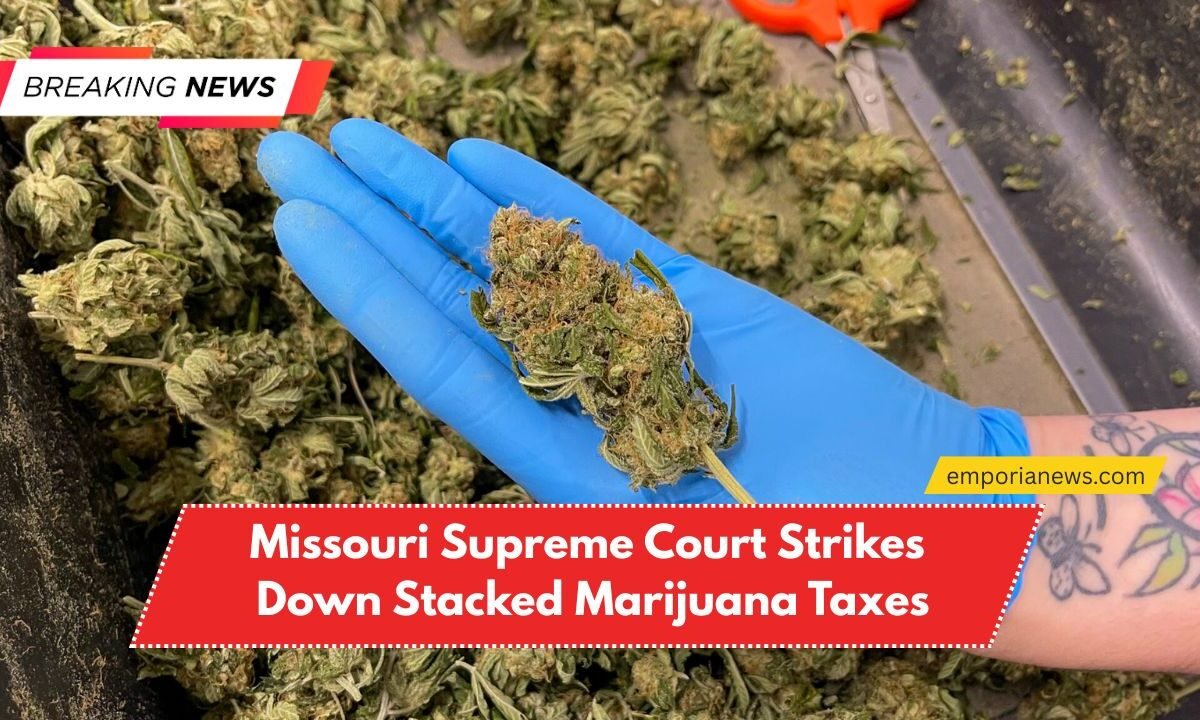In a pivotal 6-1 decision, the Missouri Supreme Court ruled on Tuesday that local governments are prohibited from stacking sales taxes on recreational marijuana products.
The ruling clarifies that only one level of local government—either a municipality or a county, depending on the dispensary’s location—can impose a maximum 3% local sales tax.
Constitutional Limits on Local Tax Authority
The ruling stems from a 2022 constitutional amendment that legalized recreational cannabis in Missouri.
According to the court, the amendment’s language precisely defines a “local government” as either a village, town, or city in incorporated areas, or a county in unincorporated regions.
The Supreme Court emphasized that this definition is based strictly on where the marijuana dispensary operates. Therefore, the imposition of two separate 3% local sales taxes—one by a city and one by a county—violates the state constitution.
Case Originated from Florissant Dispensary
The issue reached the court through a lawsuit involving Robust Missouri 3 LLC, a dispensary based in Florissant, where customers had been paying nearly 21% in total sales tax.
This included 3% taxes from both Florissant and St. Louis County, in addition to state taxes.
The court ruled that only the Florissant city tax could remain in effect, effectively invalidating the overlapping county-level tax.
This decision has far-reaching implications, potentially impacting over 70 localities across Missouri that have been implementing dual taxes on cannabis purchases.
Dissenting Opinion Challenges Interpretation
Judge Zel M. Fischer, the only dissenting voice, strongly disagreed with the majority opinion. He argued that the constitutional amendment’s plain language supports the idea that both incorporated and unincorporated areas fall under the umbrella of “local government.”
Fischer criticized the majority’s interpretation as flawed, stating:
“The patently absurd results of holding that ‘and’ means ‘or’… confirms, once again, that simply applying the constitution’s plain language is the surest way to implement the law as intended.”
Prior Legal Decisions Reversed
Previously, a lower court upheld the right for both Florissant and St. Louis County to collect a 3% marijuana sales tax.
However, a Missouri Court of Appeals panel reversed that decision in November, siding with Robust Missouri and declaring the constitutional language “plain and unambiguous.”
This latest Supreme Court ruling also resolved a second ongoing case in the Western District Court of Appeals, involving Buchanan County, where a judge had similarly approved tax stacking. Proceedings in that case were paused pending the Supreme Court’s decision.
Industry Applauds Decision as Win for Consumers
Andrew Mullins, Executive Director of the Missouri Cannabis Trade Association, hailed the ruling as a major victory for cannabis users. Mullins said the organization and its partners filed legal action shortly after dual taxation began in 2023 to protect consumers.
“This ruling is going to save Missouri cannabis customers roughly $3 million per month,” Mullins noted.
“Sales tax revenues have already tripled initial projections, and Missouri’s cannabis program stands out nationwide for affordability, access, and product quality.”
Mullins emphasized that the court’s decision helps preserve Missouri’s reputation as a top-tier cannabis market, where consumers enjoy reasonable prices, high service standards, and a diverse range of marijuana products.
The Missouri Supreme Court’s landmark decision has redefined how local marijuana taxes are administered across the state.
By preventing cities and counties from simultaneously applying their own 3% taxes, the court has clarified the constitutional boundaries of local government authority, eliminated confusion, and relieved financial pressure on cannabis customers.
With this clarity, Missouri continues to position itself as a national leader in cannabis policy, offering users one of the most accessible and affordable marijuana programs in the country.




